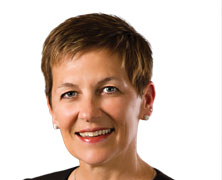A worldwide journey can start in the smallest of places. Spending a year as a Rotary Exchange Student post-high school and studying at Gustavus Adolphus inspired me to live abroad in Japan again. This opportunity to continue to learn about and respect different cultures helped me recognize early-on that the emerging global economy would soon interconnect people, markets, and cultures.
Living in this global economy and competing with well-funded foreign country education programs, we must ask ourselves if the right education polices are in place for the next generation of students and for adults returning to educational institutions. Are we appropriating the necessary level of education funding to ensure success?
My father and sister are lifelong educators and I so admire their dedication to their students and their profession. In many ways I’ve had a front row seat to the challenges facing the education system. My education and career afford me the opportunity, and indeed, the responsibility, to advocate for a quality education system and higher learning opportunities.
A quality education system must include funding for a broad curriculum of the arts, sciences, language and literature. How does a student find out what inspires them, what motivates them, unless they have been exposed to multifaceted disciplines? What I see today is that curriculum, especially in the arts, are often the first casualties of short-sighted budget cuts. Educators, business leaders, and most importantly, parents, must insist that policymakers fund full curriculums from K-12 and in all forms of higher education.
Arts, sciences, language, literature, technology and math are interrelated. In this hyper-competitive global economy the world is interconnected by technology. Markets are emerging, and millions of people are exposed to cultural diversity like never before. This economy requires highly-educated and highly-skilled workers, managers, engineers, and technicians.
Aside from four-year institutions, community colleges offer accessible and affordable education programs. For many, these two-year programs provide the first step into higher learning. These institutions deserve appropriate funding levels from government, corporations, foundations, and citizens since they are often incubators and laboratories for developing new learning and teaching models and offer important trades skills necessary for the economy.
Education develops critical thinking, teamwork, discipline, and personal responsibility, and is an investment that offers a lifelong return and reward. As a society, we must embrace education and make it our mission.







